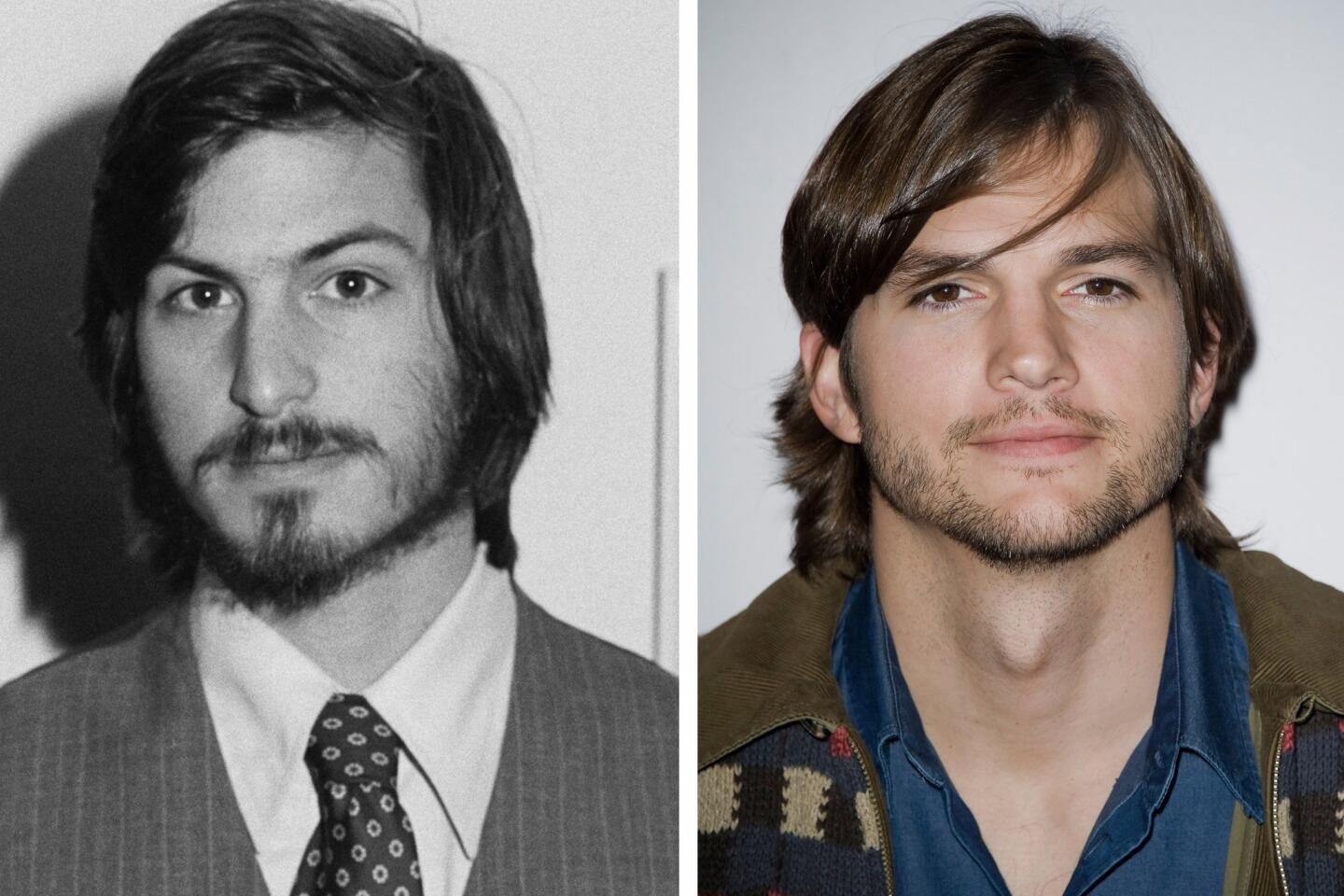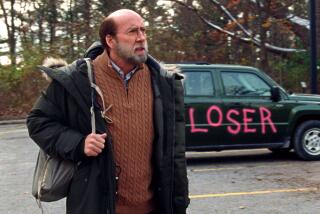Review: âJobsâ does not compute
âJobsâ opens with a scene of technology entrepreneur Steve Jobs introducing the iPod in 2001. As the Apple Inc. co-founder makes his way to a small stage, he passes ads for his own company that feature images of Einstein, Gandhi and Bob Dylan. For the next two hours, the film remains about that unsubtle in its attempts to portray Jobs as a genius for the ages.
The movieâs awe-struck attitude is even more odd and unconvincing considering that the film actually doesnât shy away from portraying its subject as ruthless, overbearing and generally self-centered. Yet somehow his ability to oversee the development of shiny new things and speak in koan-like platitudes makes all sins forgivable. In the first part of the film, for instance, he refuses to acknowledge his own daughter. Later on, she just pops up on his couch without explanation.
Directed by Joshua Michael Stern, âJobsâ stars Ashton Kutcher in the title role and is â apart from that opening scene â focused on the era from 1971 to 1991, covering the formation and early days of Apple, Jobsâ ouster from the company and his eventual return to it. First-time screenwriter Matt Whiteley has melded personal and corporate history in his script in a way that leaves the film feeling strangely without a center.
PHOTOS: Ashton Kutcher in âJobsâ
As such, âJobsâ becomes something of a life told in product launches. The film doesnât seem particularly interested in assessing Jobsâ impact on how we live our lives now, nor does it get us any closer to understanding or appreciating the man himself. (If youâre looking for a rumination on how technological innovation can be a harbinger of societal change, the recent âComputer Chessâ makes the point with far more grace and insight.)
Early in the film, a montage shows a college-age Jobs dropping acid, sitting in on classes in design and typography and standing in a field waving his arms as if conducting a symphony. The overly long movie could be shortened significantly just by trimming the number of times Jobs is seen staring off intently or walking alone. Because heâs, you know, thinking. At times, Stern stops just short of showing a light bulb blinking over his head.
Kutcher has apparently done quite well by himself as an investor in technology startups, helping get companies such as Skype and Spotify off the ground. Perhaps he sees himself as some Jobs-ian visionary in the tech world, but as an actor, heâs still Ashton Kutcher. Though Kutcher does throw himself into the role with all heâs got, trying to capture Jobsâ distinctive walk and mercurial temperament, his performance comes off as an assemblage of mannerisms with no deeper feeling or understanding.
PHOTOS: Remembering Steve Jobs | 1955 - 2011
Late in the film, Kutcher stands with his thumb to his chin, in obvious emulation of the photo used on the cover of Walter Isaacsonâs widely read, authorized biography of Jobs. (Isaacsonâs book itself is being adapted for the screen by Aaron Sorkin, who won an Oscar for âThe Social Network,â another personal/tech biopic.)
The most compelling figure to emerge in âJobsâ is actually not Steve Jobs but rather fellow Apple co-founder Steve Wozniak, played by Josh Gad. The dynamic strictly between the two of them â a jousting match over innovation, ethics and ambition â would seemingly make a sharper, more perceptive movie unto itself.
âJobsâ feels curiously out of touch with its subject, both as a man and regarding his impact. There was a time when the slack storytelling, stock characterizations and general by-the-numbers feeling of the film could be put into perspective by saying it seemed like a TV biopic. But even TV movies are done with more verve than this these days.
-------------------------
âJobsâ
MPAA rating: PG-13 for some drug content and brief strong language
Running time: 2 hours, 7 minutes
Playing: In general release
More to Read
Only good movies
Get the Indie Focus newsletter, Mark Olsen's weekly guide to the world of cinema.
You may occasionally receive promotional content from the Los Angeles Times.












